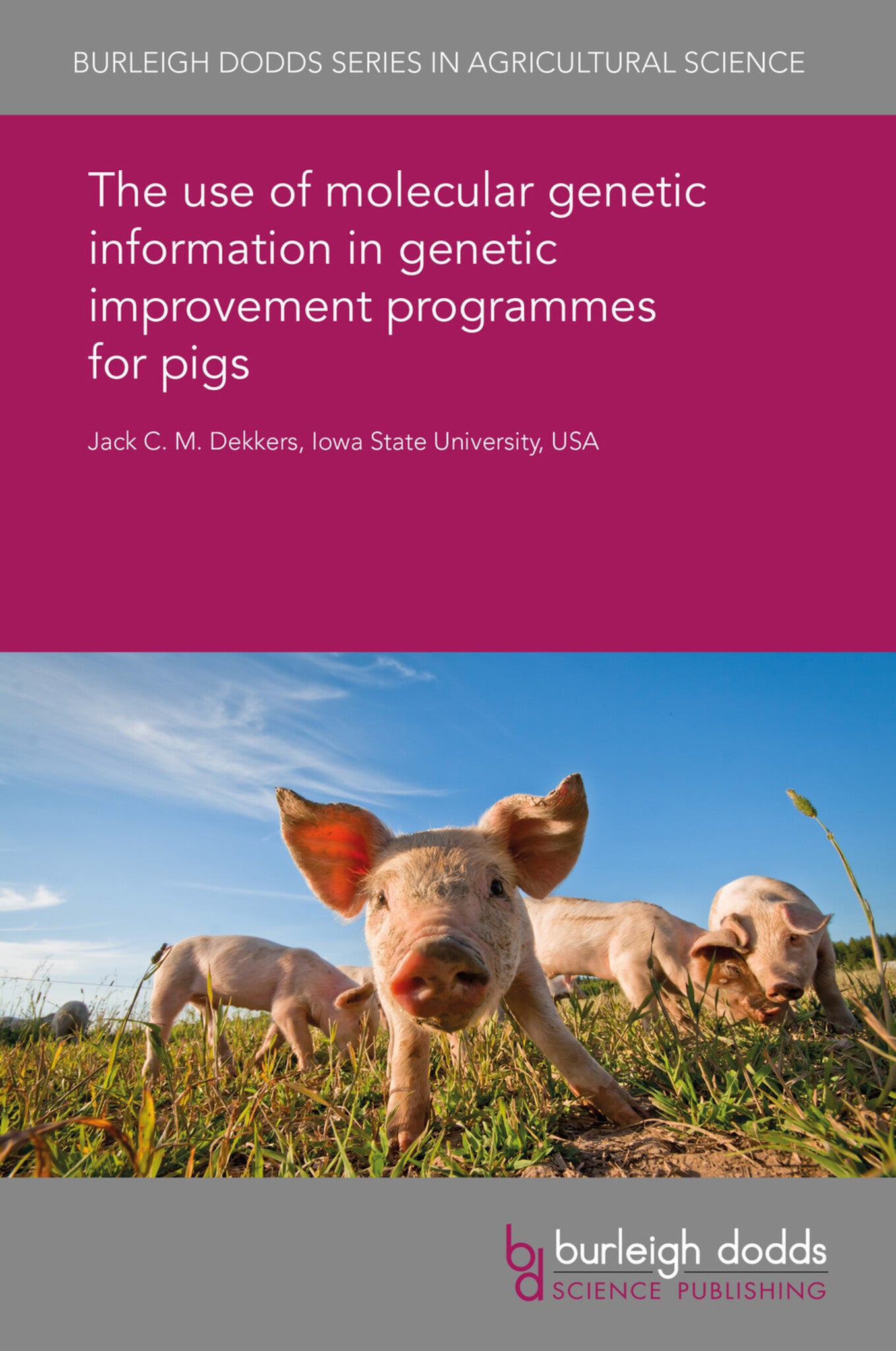We're sorry. An error has occurred
Please cancel or retry.
The use of molecular genetic information in genetic improvement programmes for pigs

Some error occured while loading the Quick View. Please close the Quick View and try reloading the page.
Couldn't load pickup availability
- Format:
-
18 October 2017


TECHNOLOGY & ENGINEERING / Agriculture / Sustainable Agriculture, Animal breeding, TECHNOLOGY & ENGINEERING / Agriculture / Animal Husbandry, Sustainable agriculture, Animal husbandry

1 Introduction 2 The black box of quantitative genetics for phenotype-based breeding programmes 3 The principle of using molecular information for genetic improvement 4 The use of molecular information in selection: genetic tests 5 Phenotyping and genotyping requirements for genomic selection (GS) or marker-assisted selection (MAS) 6 Other benefits of molecular information for swine breeding programmes 7 Summary 8 Future prospects and challenges 9 Where to look for further information 10 References



